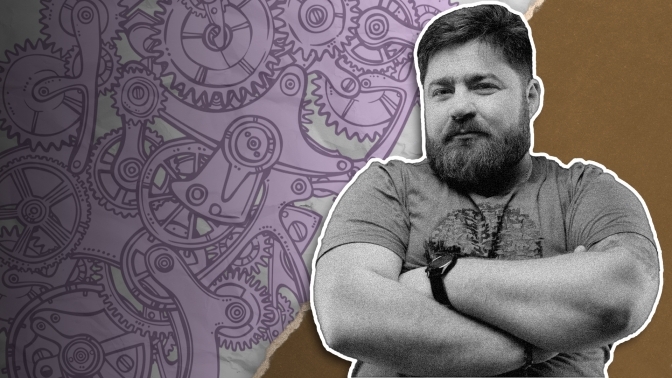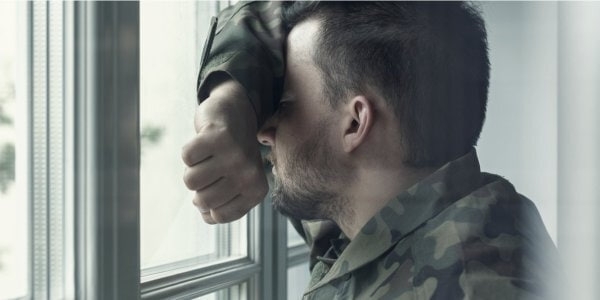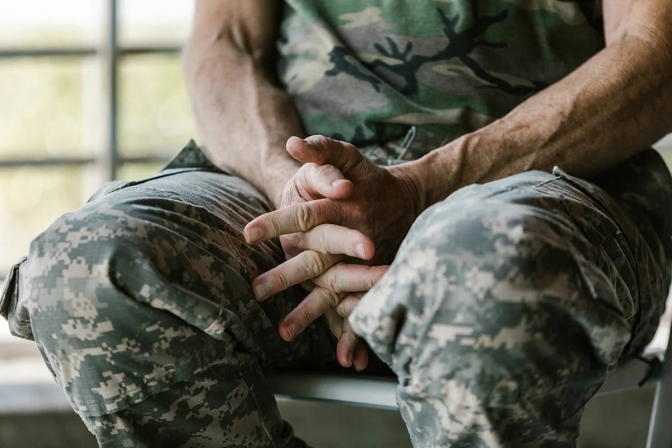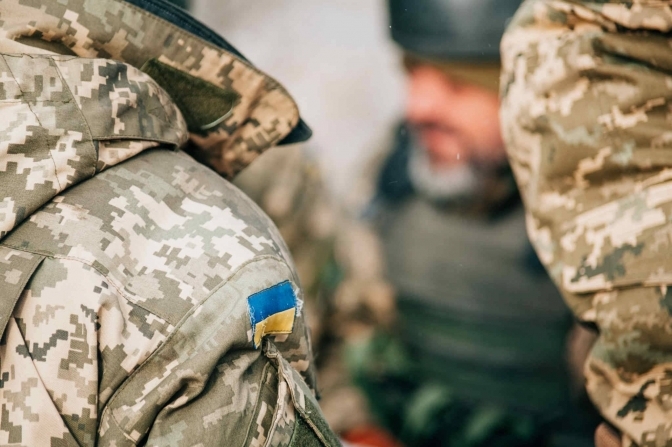
[For daily insights from throughout Ukraine, follow Ukrainian Freedom News on Telegram]
Many soldiers have been at the frontline for a year without rotation. How does it affect their psyche and can a person endure such stress for a long time?
People possess such an ability as adaptability. That is, the ability to get used to new conditions. After a year, a person adapts and makes some progress. The brain has neuroplasticity, while the body has adaptability. I can’t say that we are all very well, but it’s not critical yet. The general state of things right now is that the military is a bit exhausted, but it’s more about functionality than morale. However, as long as they have a mission, a goal, as long as each person knows what to do, how useful they are – we can still fight in this state. There is no time to communicate with psychologists on the front line, people there are busy with other things. And in order to communicate with a psychologist, you need appropriate conditions. Perhaps there are psychologists who do not perform the functions of psychotherapists who are present on the front lines and can provide some help. In most divisions, vacancies for psychologists are closed, that is, there are people. But the question is not in psychologists, but in the awareness of every serviceman of the importance of taking care of his mental health. Imagine you have a very expensive but good dentist and you still don’t brush your teeth or bite down on wire – it doesn’t matter how good that dentist is if you keep grinding your teeth. The same is true here: the number of psychologists on staff is not so important as people’s awareness of self-care. Psychologists, as a rule, work with soldiers on the second line, because on the front line, you have to fight. When a psychologist gets on the front lines, he is more likely to help dig the trenches than to say, «Let’s talk about your mental state.»
What one should not ask a military officer? What questions can traumatize him, cause stress, aggression or other negative emotions?
Do not ask questions, the answer to which won’t change anything. Military men really don’t like being asked: «When will the war end?» or «When will it all end?» The fighter feels guilty at such moments because he is not fighting well and is to blame for the fact that the war is not over yet. Never ask a warrior if he killed. This is a very impolite question because then, the serviceman thinks that you want to enrol him in the cohort of murderers. But they are not killers – they destroy the enemy’s manpower. Or: «Did you kill civilians?», «Tell me what was the worst thing in the war?» Very often, when asking about it, people have their own idea of what the scary means, and they themselves are not ready for an answer. The question like «Did you miss me?», «Did you think about our children?» they force a serviceman to lie because during the war, he thought of only one thing – how to survive.

How can a serviceman take care of his mental state and not fall into apathy?
Such conditions as apathy, depression, acute reaction to stress, begin already after returning from the frontline because the front is usually very stable: the serviceman is angry, sometimes irritated or afraid. And such situations arise when the level of security increases, and it is then that psychologists can help military personnel. However, unfortunately, the culture of appeal is very low, because few people can detect apathy in themselves and do not try to overcome it. But in general, the number of fighters who apply for help is much higher compared to 2014.
Apathy is a state when a person has absolutely no inner resource and needs to recover. In such cases, you shouldn’t do anything extraordinary, it’s better to learn to do nothing at all, get some sleep, eat and retire. But usually, we don’t do that. We pick up the phone and go to, for example, Instagram. You have to learn very trivial things, like making the bed or going for a walk, walking more than 750 meters. It is very important not to drink alcoholic beverages because they only increase apathy. Personally, I suggest making dumplings, even if you hate them. The fact is that fine motor skills work during such an activity, and the central nervous system «loves» it very much. In this way, a person comes out of this state. If nothing helps after three or four days, you should gather your courage and go to a psychotherapist, because he is on your side and can tell you in detail what needs to be done.
Our body is much smarter than we are. When a person has a lot to do, is in a hurry – the whole world presses on him, and his body simply «turns off». So that the body gains energy, and does not use it up completely, a person falls into apathy.

Earlier, the WHO stated that every fourth Ukrainian is at risk of mental disorder due to the war. Can this post-traumatic syndrome really exist in so many people?
WHO relies on data from the United States of America. Their military had a lot of people with PTSD. How is the American war different from ours? America is at war everywhere, but not at home. Fighters fly into a combat zone with the motivation of protecting the democratic system of the United States. And suddenly, they come under fire in Iraq, and ask themselves: «What am I even doing here, in this desert?» Another thing is when our Ukrainian fighter, despite all that is happening, clearly knows what he is doing here. Post-traumatic stress disorder begins with a psycho-traumatic event, that is, something terrible has to happen. But I am not sure that there will be at least 20 per cent of such people. Because there is still an «Israeli» percentage of people with the post-traumatic syndrome, which is much smaller – from four to seven. And Israel is fighting at home.

Also, I heard about the post-traumatic stress management strategy from the health minister who said he would buy pills for everyone. But work with post-trauma should be more extensive. Now the state is not ready for veterans to return home, nothing has been done for this yet. However, it is necessary to train specialists, take care of special centers for working with military personnel. These should not be social services, where in one place they will work with large families, people who have drug addiction, and veterans. It should be a separate territory, place, people and perspectives in order to work with soldiers who have returned from the front. In addition, a legal field is needed, because many legal statuses will have to be restored. Military personnel should realize that they are returning home where everything is fine. But currently, there is no such thing. Now it is difficult to organize it because it is said that the war is going on, that a lot of things are being done anyway. We will also need a lot of specialists who will be able to work in this direction and have legal status because it also does not exist yet. I don’t know if the state leadership has any ideas about this, but I won’t hope for it. I think society will do more: public associations, unions, and foundations that will create appropriate conditions for the recovery of veterans.
Iryna Davosyr, translated by Vitalii Holich
Photo from open sources
Full or partial republication of the text without the written consent of the editors is prohibited and considered a violation of copyright.
Follow us on Facebook and Instagram. Lviv Now is an English-language website for Lviv, Ukraine’s «tech-friendly cultural hub.» It is produced by Tvoe Misto («Your City») media-hub, which also hosts regular problem-solving public forums to benefit the city and its people.











